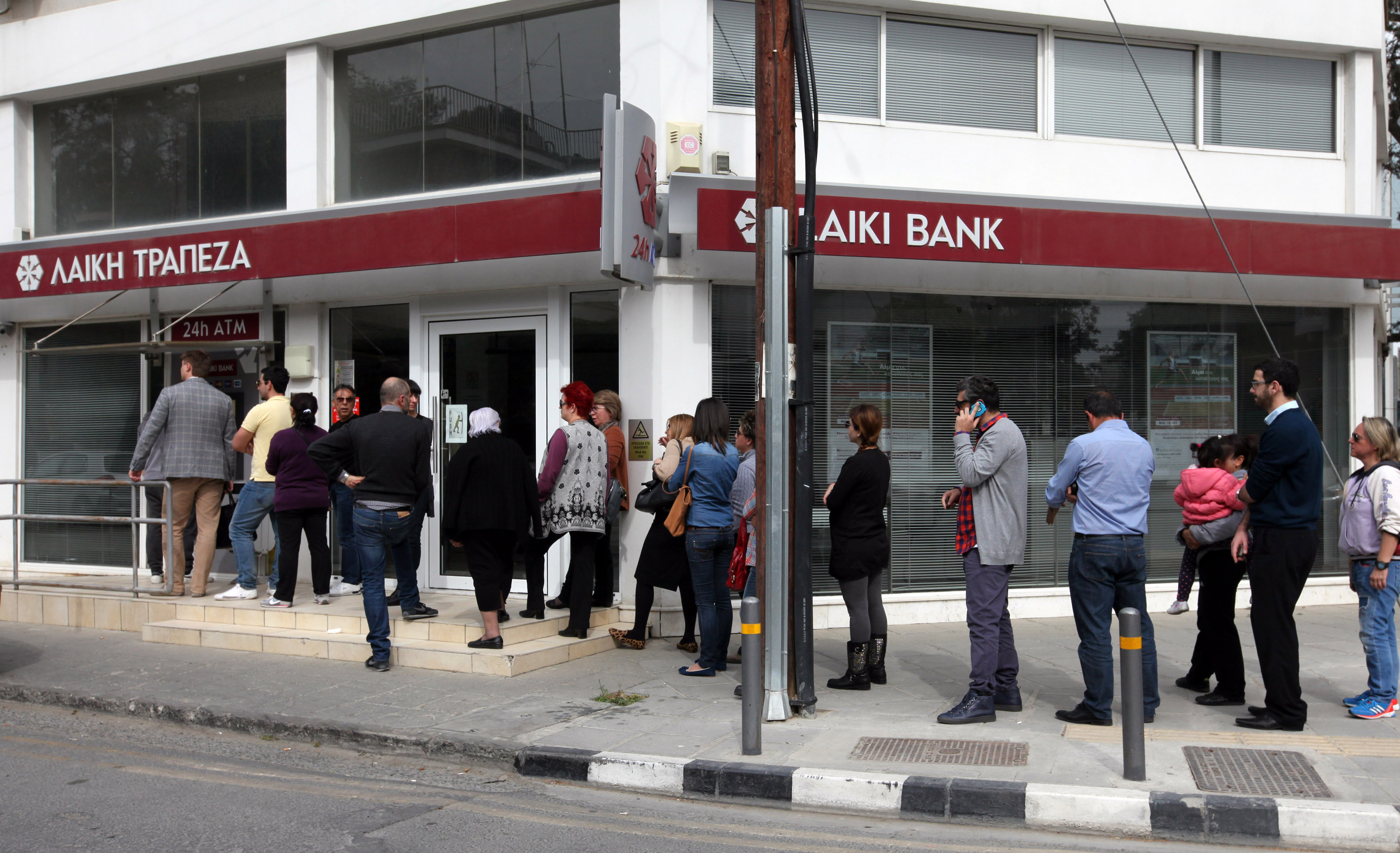Eleven years plus after the devastating bank bail-in of 2013, the clock is ticking for those still seeking restitution. The statute of limitations already expired years ago. Meantime one after another the courts have dismissed the lawsuits, time and again siding with the defendants – the banks and the state. Only one judge has bucked the trend – perhaps offering a glimmer of hope for those who saw their uninsured savings wiped out.
People with whom we spoke to – on either side of the issue – agree on one thing: it’s extremely difficult for the courts in Cyprus to deliver a judgment going against the actions of the state of March 2013.
As if to drive the point home, a Nicosia court earlier this week ruled the same way as in a multitude of other cases previously. In its ruling, it stated that the actions taking place in March 2013 to rescue Bank of Cyprus were “absolutely necessary and correct”.
It further rejected the argument of the plaintiffs – burned depositors with Bank of Cyprus – that their right to property was violated. The court noted that the right to property may be subject to restrictions in certain circumstances, such as in safeguarding “the public interest”.
The court said that the ‘haircut’ or bail-in on bank depositors was done for reasons of public interest – to prevent a “disorderly default” of the banks which would have had disastrous consequences on both bank creditors and the economy at large.
It’s more or less the same refrain heard countless times. It would seem the courts have closed ranks.
To recap: in March 2013 big savers with the Bank of Cyprus had 47.5 per cent of their uninsured deposits (any amount over €100,000) converted into shares, under the terms of an international bailout. As for Laiki Bank, all uninsured deposits there were wiped out, and the lender was wound down and its operations folded into the Bank of Cyprus.
Under the bailout programme between Cyprus and its lenders, large depositors paid for the recapitalisation of the Bank of Cyprus, heavily exposed to debt-crippled Greece.

Why do the overwhelming majority of lawsuits fail?
One source familiar with the matter said: “Clearly, these court decisions have a political dimension. Judges are, in a broad sense, part of the state apparatus…so it’s not hard to understand that they would not go against the state.”
Judges also tend to play it safe, the same source said.
“Essentially, they ‘copy-paste’ each other, as no one wants to be the fly in the ointment, no one wants to be the one who rocks the boat.”
And so, at the present time, most lawsuits by bank depositors have either been concluded or withdrawn. Protracted litigation does cost money.
Another source, who likewise preferred to speak anomymously, gave a somewhat more benign explanation. The source, who has closely studied such court cases, said that judges lack the expertise in finance and economics.
“They’ve got no deep knowledge of these issues. They are jurists, sometimes excellent jurists…but that’s the point, the law is what they know.”
However, this source too acknowledged that many of the rulings may be political in nature.
“In most cases, plaintinffs claimed their human rights – for example property rights – were violated. This is relatively easy to debunk legally speaking, since as the courts have repeatedly stated, the right to property is not absolute.”
To date, only two lawsuits have succeeded, with the judge finding for the plaintiffs. In both cases it was the same judge – a D. Kitsiou, formerly with Limassol district court.
“Kitsiou took a different track. He looked at what preceded the bail-in, in other words he considered the background, and did not view the haircut as just a snapshot in time.
“Another facet is that he was convinced by the plaintiffs that they were deceived…that despite the depositors having received assurances that no haircut would happen, it did happen. Had they been given accurate information, they would have moved to take their money out of the bank.”
For example, in one of the two haircut cases he adjudged, Kitsiou was sufficiently convinced by the testimony, provided by an expert witness, that depositors at Laiki were misled. He referred to the fact that a Central Bank official, acting on behalf of the Central Bank governor, sent a letter on March 11, 2013 to the CEOs of Laiki Bank and Bank of Cyprus.
In the missive, the Central Bank official stated unequivocally that “any action which results in a reduction, or inability to access, or a restriction to the property rights of depositors runs contrary to the consitution of the Republic of Cyprus as well as to Article 1, Protocol 1 of the European Convention on Human Rights which safeguard the right to private proverty.”

But just days later, parliament enacted the bank restructuring law which allowed for a bail-in option, in other words, for a bank to be recapitalised from the inside.
And who can forget that this law passed while the banks themselves were shuttered – meaning depositors’ money was ‘locked’.
“Let’s also recall,” says the same source, “the surge in Emergency Liquidity Assistance (ELA) given to Laiki Bank between March 2012 and July 2012.
“In short, the severe problem with the banking system was known well in advance, and plenty of time passed before we got to where the bail-in was presented as the only way out of the mess. This is another factor that judge Kitsiou took into account.”
On the flipside, an attorney knowledgeable about the matter boils it down to this:
“In the aftermath of 2013, all of the courts have said that the haircut was legal. The House mandated the haircut legislation, and the banks complied. They simply followed the law.”
Asked to estimate the number of haircut-related lawsuits filed so far, the lawyer said it’s very difficult, but if he had to guess they range between 1,000 to 2,000.

For lawsuits where Bank of Cyprus is one of the defendants, perhaps a few hundred lawsuits are still pending.
In tandem, the statute of limitations has already expired. Broadly speaking, in Cyprus the statute of limitations for filing a civil lawsuit is six years. This suggests that the last bail-in lawsuits were filed in 2019 – six years after the fact.
“So, taking all this into consideration, we could say the haircut claims are thinning out,” said the lawyer.
On whether any such cases have been heard at the European Court of Human Rights, the lawyer said yes – although he could not recall specifics.
“What I do know is that the Echr has opined that in Cyprus there occurred no unlawful interference with private property in relation to the events of 2013.”
As it happens, the two court judgments favouring the plantiffs in Cyprus were issued in November 2023.
In the first, dated November 8, judge Kitsiou awarded the plaintiff – Ivan Antonov, a Russian national – the sum of €780,000. Ivanov had initially sued for €1.6 million in damages.
He had sued Laiki Bank, its special administrator Andri Antoniadou, the Central Bank and the Republic of Cyprus. The defendants actually found liable were Antoniadou and the Central Bank.
Laiki, now defunct, cannot be expected to pay damages.
In the second successful case, the judgment issued on November 30 of 2023, judge Kitsiou found in favour of a group of plaintiffs. They were: Farid Kantserov, Svetlana Kantserova, and Evgeny Kantserov (Russian nationals) as well as Andrei Kantsarau and Tatiana Kantsarava (Belarussian nationals).
In this order, the plaintiffs were awarded the following damages: €1.35 million, €2.45 million, €651,000, €434,000, and €490,000.
They had likewise sued Laiki Bank, Andri Antoniadou, the Central Bank and the Republic of Cyprus.
Here again, the defendants found liable were Antoniadou and the Central Bank.
Both these judgments are under appeal.
According to International Monetary Fund data, the total deposits which got ‘shaved’ in March 2013 amounted to around €8 billion, of which €3.7 billion were with Laiki Bank.


